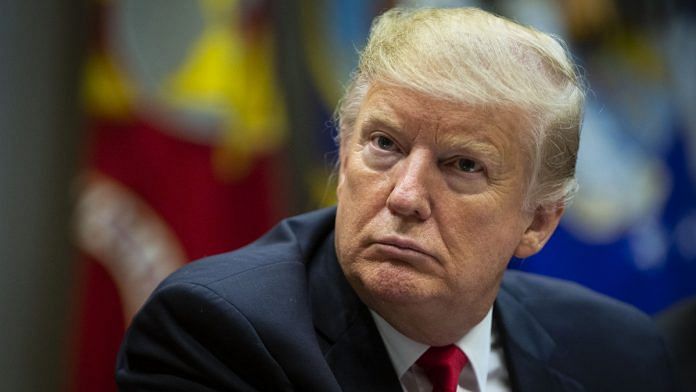New Delhi: Following the killing of Iran’s top military commander Qassem Soleimani by the US and Tehran’s retaliatory missile strikes on US troops in Iraq, there are signs that both the countries want to de-escalate and avoid further conflict.
In his address to the nation Wednesday, US President Donald Trump said, “Iran appears to be standing down, which is a good thing for all parties concerned and a very good thing for the world.”
He added, “United States is ready to embrace peace with all who seek it.”
Similarly, Iran’s United Nations ambassador Majid Takht Ravanchi said, “As far as Iran is concerned, that action was concluded last night.”
Iran’s missile strikes on two Iraqi military bases that housed US troops led to no casualties.
According to analysts, the strikes allowed Iran to retaliate but the lack of casualties has let the US diffuse tensions going ahead.
A calibrated Iranian response
Security analysts, especially the ones that study ‘deterrence’ praised Iran’s response as a fine display of power and diplomacy.
General Soleimani, who was killed by US airstrikes in Baghdad, was considered the second most powerful man in Iran. As a result, Iran was forced to retaliate to appease the domestic citizens, argue analysts.
Several Iranian statements also indicated that it dis not wish to go to war with the US.
Iran’s response managed to fulfil both the criteria.
“Trump made the opening bid, and it was big. Iran is not up for an immediate conflict, which it would lose, if we define lose by ‘take a lot of damage’. But jumping to ballistic launches from Iran to Iraq was big, too,” tweeted Tom Nichols, a security studies scholar.
He added, “Trump changed the rules, so Iran changed its rules as well. The U.S. killed an Iranian bad guy — a very bad guy — and so Iran made it personal, showing they’ll reach out, hit us directly, and *take responsibility for it*. But not doing a lot of damage wisely left a door open”.
Another aspect of Iran’s missile strikes that has garnered a lot of appreciation is their ability to conduct such precision strikes. The attacks had to be extremely precise to ensure no casualties
According to analysts, Iran’s ability to conduct them shows the prowess of their missiles program.
Risks remain
Some scholars, however, are not so optimistic.
“As I’ve been saying, Iran claiming it’s done with its retaliation allows it to deny involvement if/when proxies launch their own attacks. So, let’s not take it at face value that we’re done here,” tweeted Ariane Tabatabai, a political scientist.
Iran maintains proxies in Lebanon, Iraq, Syria, and Yemen among other countries and these form the bedrock of the country’s regional influence.



